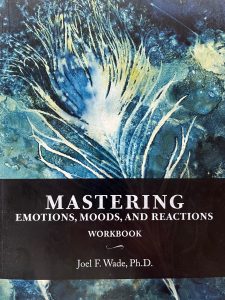We have a unique capacity to envision an immense variety of possible future states. This allows us have ideals and strive for them, to plan, to learn and grow… and to want things.
In an essential way this orientation toward the future is what makes us human. We can imagine something we want to achieve, something we want to avoid, something we want to have, and then we can plan and aim ourselves toward achieving, avoiding, or gaining possession of whatever it is.
But there’s a downside.
What if I want something that other people have, and I don’t?
What if I want something that I had in the past but no longer have?
What if I expect to have something, but don’t end up getting it?
What if I want something I can’t have?
That gap, between what we have and what we want, can inspire us to strive, to persevere, to lean into our lives more… but it can also make us miserable.
One of the main causes of depression – along with loss, feeling stuck, and certain poor habits – is when we strive for goals that we cannot achieve. I don’t mean goals that are difficult but that, with enough work and grit we may very well achieve; I mean goals that are genuinely beyond our abilities.
The desire to achieve things, to have things, to make things happen that are beyond our capacity is extremely common these days – and may be one of the reasons depression has been increasing.
Images and expectations for perfection and unrealistic success have been increasing. Social media shows posts of people enjoying lives of adventure and perfect happiness. It’s natural to want to share joyful images and triumphs; but the cumulative effect in this online format is to present a world in which none of us actually lives; where everyone is happy and successful, always. This can lead to a greater focus on image and external displays of success rather than internal satisfaction.
Young people are more likely now than in the past to believe they’re going to attend graduate school, or agree with the statement: “I will never be satisfied until I get all that I deserve.” And in 2005 a third of American teenagers said that they were going to be famous someday. These are all examples of expectations that, for most people, will never be met.
If we expect to have a certain kind of house, a certain kind of car – or a certain number of houses or cars – but we don’t yet have what we expect, we can either work on it from the outside by striving to get those things, or from the inside, by adjusting our expectations.
Striving is wonderful. Earned success is one of the deep satisfactions of life – as long as what we’re striving for is genuinely achievable and reflects our true values.
But to the degree that we tie our well-being to the outcome of our striving, we’re also focusing on things outside of our control. We may work hard, do everything right, and still not reach the specific outcome we desire.


 After my workout, I stopped at the cliffs above Capitola, overlooking the Monterey Bay. It had just rained lightly, so the air was crystal clear, and the brownish gold of the kelp beds at low tide made a vivid contrast with the blue gray ocean. The little bit of sun that peeked through the clouds lit a meandering path across the water and through the center of the wharf.
After my workout, I stopped at the cliffs above Capitola, overlooking the Monterey Bay. It had just rained lightly, so the air was crystal clear, and the brownish gold of the kelp beds at low tide made a vivid contrast with the blue gray ocean. The little bit of sun that peeked through the clouds lit a meandering path across the water and through the center of the wharf.
Recent Comments